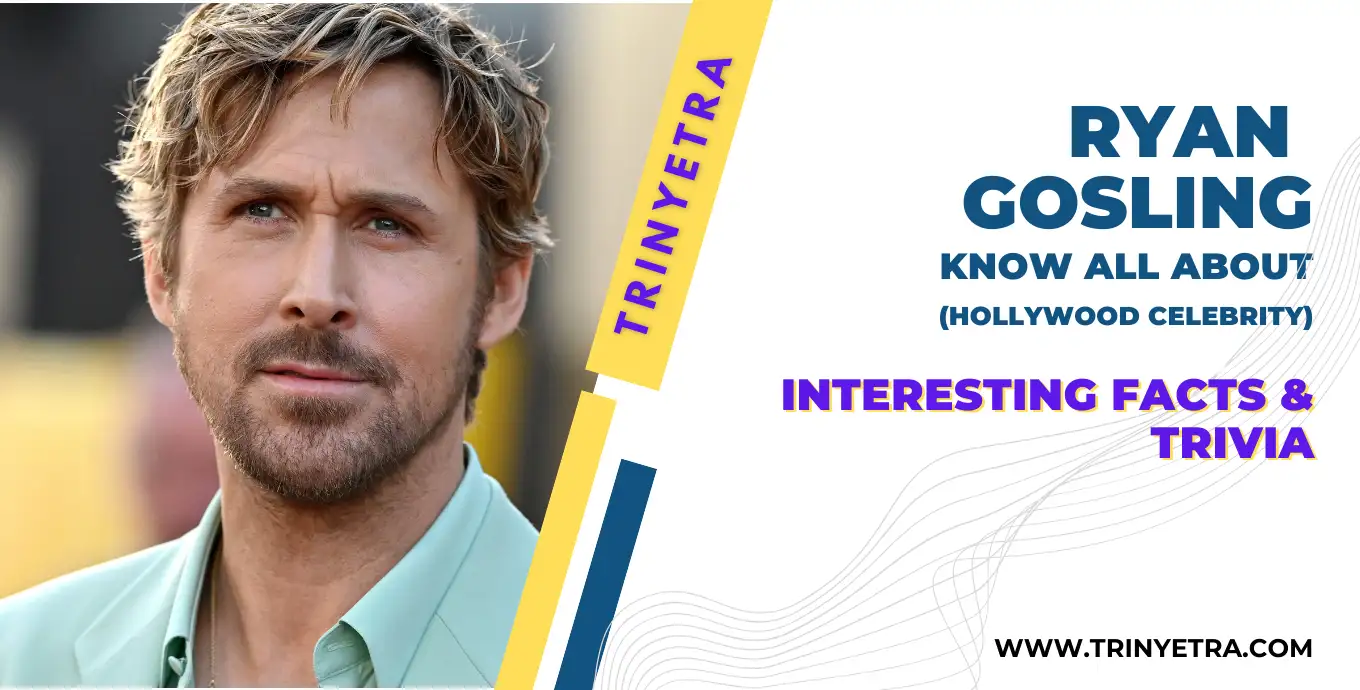 Actor
Actor
Ridley Scott Biography, Age, Net Worth, Height, Movies & Latest Updates
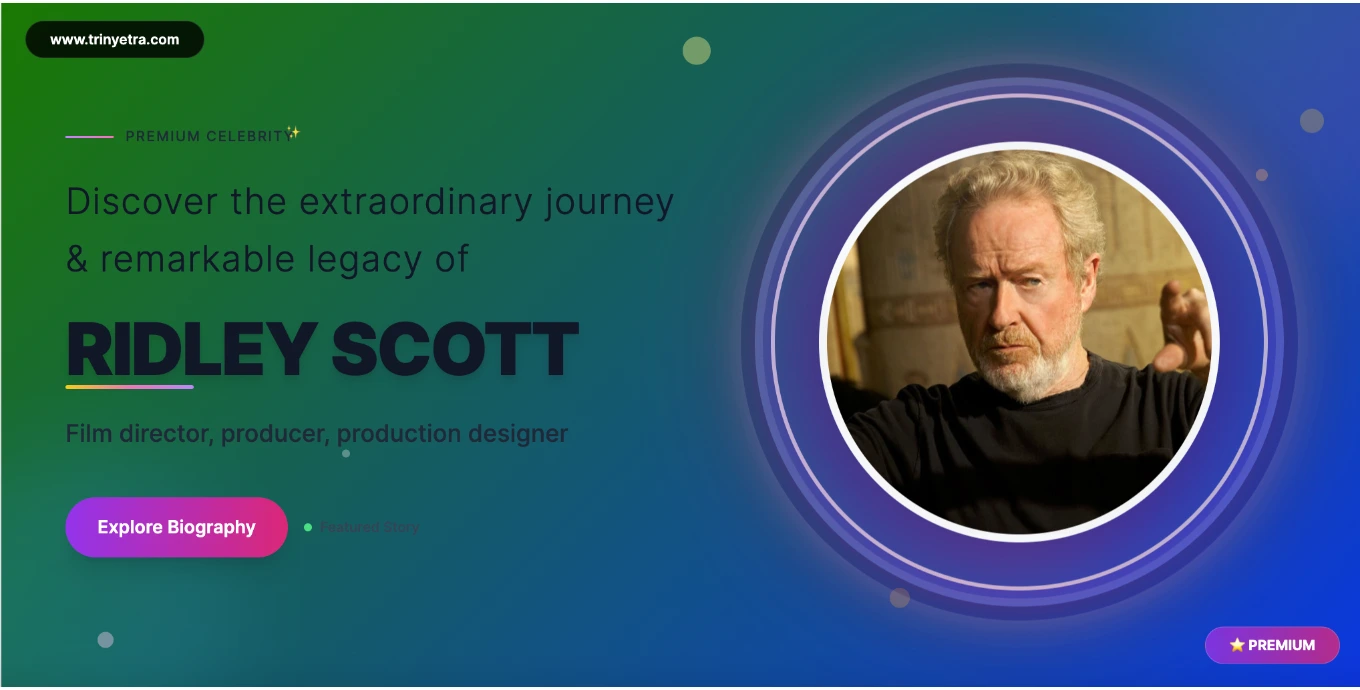
Ridley Scott worked in many legendary films. Know about Ridley Scott's biography, career journey, age, birthday, education, profession, filmography, net worth, awards, height, achievements, latest projects, and comprehensive details about the visionary director behind Alien, Blade Runner, and Gladiator.
At 87 years old, Sir Ridley Scott continues to dominate international cinema with his recent releases, including Napoleon (2023) and the highly anticipated Gladiator II (2024). The British filmmaker has built substantial wealth through decades of groundbreaking work that redefined science fiction, historical epics, and modern thrillers with his distinctive visual style and storytelling mastery.
From his knighthood in 2003 to receiving the BAFTA Fellowship in 2018, Scott's journey encompasses the creation of cinema classics like Alien and Blade Runner, the Oscar-winning epic Gladiator, and contemporary hits like The Martian. His unique vision has earned multiple Academy Award nominations and established him as one of the most influential directors in film history.
| Real Name | Ridley Scott |
|---|---|
| Nick Name | Sir Ridley Scott |
| Profession | Film director, producer, production designer |
| Date of Birth | November 30, 1937 |
| Age | 87 years (as of 2025) |
| Birth Place | South Shields, County Durham, England |
| Height | 5'8" / 174 cm |
| Net Worth | Estimated substantial wealth (2025) |
| Marital Status | Married to Giannina Facio (2015) |
| Nationality | British |
| Education | Royal College of Art, London |
Table of Contents
- Ridley Scott's Bio
- Early Life & Education
- Personal Life
- Career Journey
- Net Worth & Financial Success
- Physical Appearance & Style
- Awards & Achievements
- Latest Projects & News
- Trending 2025 News Snippets
- Challenges & Career Evolution
- Interesting Facts
- Social Media & Public Presence
- Related Directors
- FAQ Section
Ridley Scott's Bio
Ridley Scott is famous as Sir Ridley Scott and is a prominent figure in the international film industry. He is renowned as a director, producer, and production designer and is considered one of the most visually innovative filmmakers in modern cinema, seamlessly transitioning between science fiction masterpieces and sweeping historical epics.

|
Scott's rise to international prominence began with his feature debut, The Duellists (1977), which won the Cannes Jury Prize for Best First Work, establishing him as a filmmaker with exceptional visual flair and narrative sophistication. His unique ability to create immersive, meticulously designed worlds has made him a master of both intimate character studies and spectacular blockbusters. From the claustrophobic terror of Alien to the sweeping grandeur of Gladiator, Scott demonstrates an unparalleled understanding of how visual design serves storytelling.
Currently maintaining prolific output well into his 80s, Scott continues to push creative boundaries with ambitious projects like Napoleon and Gladiator II. His influence extends beyond directing to mentoring through his production company Scott Free Productions, which he founded with his late brother Tony Scott. The filmmaker's commitment to practical effects, detailed world-building, and complex characters has earned him respect from industry peers and multiple generations of filmmakers worldwide.
Like other legendary directors such as Hugh Jackman and George Miller, Ridley Scott has carved a unique niche in the entertainment world through his distinctive vision and unwavering commitment to cinematic excellence across multiple decades.
Ridley Scott's Early Life & Education
Childhood & Family Background
Ridley Scott was born on November 30, 1937 in South Shields, County Durham, England. His father's name is Francis Percy Scott, who served in the British Army, and his mother's name is Elizabeth Jean Scott. Ridley Scott has two brothers - Frank Scott and the late Tony Scott, who also became a renowned film director known for Top Gun and Crimson Tide.
Growing up in a military family meant frequent relocations across the UK and Europe, exposing young Ridley to diverse cultures and landscapes that would later influence his filmmaking aesthetic. The Scott family valued education and creativity, with his father encouraging artistic pursuits despite the practical demands of military life. This early exposure to different environments and visual experiences shaped Scott's exceptional eye for production design and his ability to create authentic period settings in his films.
Educational Journey
Ridley Scott completed his initial art education at West Hartlepool College of Art before advancing to the prestigious Royal College of Art in London. At the Royal College, he not only studied but helped establish the film department, demonstrating early leadership in cinematic education. His time at RCA was transformative, allowing him to explore filmmaking techniques and develop his distinctive visual approach through experimental shorts.
Scott's educational background in art and design provided him with fundamental skills in composition, color theory, and visual storytelling that would become hallmarks of his directorial style. His graduation project, the short film Boy and Bicycle (1965), showcased his emerging talent and foreshadowed his future success in creating visually stunning cinema. The combination of formal art education and practical filmmaking experience at RCA established the foundation for his later innovations in production design and cinematography.
Ridley Scott's Personal Life
Relationships & Marriage History
Ridley Scott is currently married to Giannina Facio, an actress and producer who has collaborated with him on multiple film projects. They married in June 2015 in England, cementing a professional and personal partnership that spans many years of working together. Before marrying Facio, Scott was previously married to Felicity Heywood (1964-1975) and Sandy Watson (1979-1989).
Scott's approach to relationships reflects his preference for maintaining privacy while building meaningful partnerships with collaborators who share his creative vision. His marriage to Facio represents both personal happiness and professional synergy, as she has contributed to many of his recent productions as both an actress and behind-the-scenes collaborator. Their relationship demonstrates Scott's ability to balance the demanding requirements of major film production with personal fulfillment.
Family & Legacy
Ridley Scott has three children who have all followed creative paths: Jake Scott and Luke Scott, both accomplished directors in their own right, and Jordan Scott, who works as a filmmaker and has directed both commercials and feature films. The Scott family represents a filmmaking dynasty, with multiple generations contributing to cinema and commercial production.
| Current Spouse | Giannina Facio (married June 2015) |
|---|---|
| Previous Marriages | Felicity Heywood (1964-1975) Sandy Watson (1979-1989) |
| Children | Jake Scott (director) Luke Scott (director) Jordan Scott (filmmaker) |
| Brothers | Frank Scott Tony Scott (late director) |
| Family Legacy | Multi-generational filmmaking dynasty |
| Residence | London, UK and Los Angeles, USA |
The loss of his brother, Tony Scott, in 2012 was a significant personal tragedy for Ridley, as they had maintained both professional collaboration through Scott Free Productions and close personal bonds throughout their careers. Tony's death deeply affected Ridley's perspective on life and work, reinforcing his commitment to continuing their shared legacy of innovative filmmaking while honoring his brother's memory through their production company's ongoing projects.
Ridley Scott's Career Journey
Career Debut & Early Television Work
Ridley Scott started his professional career in 1965 as a television director with the BBC, working on episodes of shows like Z Cars. His early television work provided essential training in efficient production methods, working with actors, and managing complex logistics under tight deadlines. The breakthrough into feature films came with The Duellists (1977), adapted from a Joseph Conrad story about obsessive dueling officers during the Napoleonic era.
| Career Debut | |
|---|---|
| First Feature Film | The Duellists (1977) |
| Television Debut | Z Cars - "Error of Judgement" (1965) |
| Production Company | Ridley Scott Associates (RSA), co-founded 1967 |
| Early Recognition | Cannes Jury Prize for Best First Work |
| Commercial Success | Apple "1984" Super Bowl commercial |
Before establishing himself in feature films, Scott co-founded Ridley Scott Associates (RSA) in 1967, which became one of the most successful commercial production companies in the world. His work in advertising, including the iconic Apple "1984" Super Bowl commercial, demonstrated his ability to create compelling visual narratives within strict time constraints. This commercial success provided both financial independence and creative freedom that would prove crucial for his later film career.
Scott's transition from television and commercials to feature filmmaking was marked by his meticulous attention to visual detail and innovative use of production design. The Duellists established his reputation for creating authentic period atmospheres and complex character relationships, skills that would become essential elements of his most celebrated works.
Science Fiction Revolution & Major Success
Ridley Scott gained massive international recognition with Alien (1979), which redefined science fiction horror and established many visual and narrative conventions that continue to influence the genre today. This film demonstrated Scott's ability to combine intimate psychological drama with spectacular visual effects, creating an atmosphere of claustrophobic terror that revolutionized both sci-fi and horror cinema.
Following Alien's success, Scott created Blade Runner (1982), initially a commercial disappointment that has since been recognized as one of cinema's most influential masterpieces. The film's neo-noir aesthetic, philosophical themes, and groundbreaking production design established the template for cyberpunk cinema and demonstrated Scott's willingness to prioritize artistic vision over immediate commercial appeal.
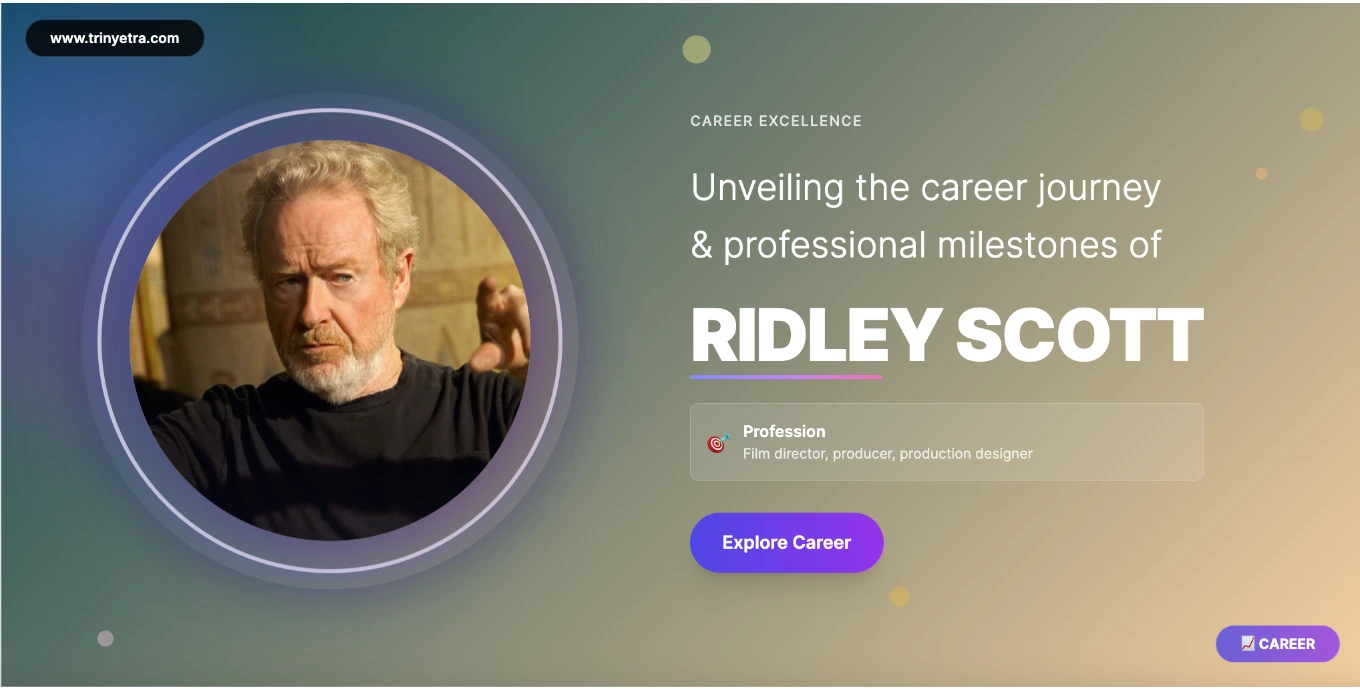
|
The 1990s brought Scott mainstream success with Thelma & Louise (1991), which earned him his first Academy Award nomination for Best Director, and the 2000s delivered his biggest commercial triumph with Gladiator (2000), which won five Academy Awards, including Best Picture. His recent work on The Martian (2015) proved his continued relevance in contemporary cinema, earning critical acclaim and significant box office success while demonstrating his mastery of both practical and digital filmmaking techniques.
Ridley Scott's Net Worth & Financial Success
Ridley Scott has achieved extraordinary financial success through his multi-faceted career spanning feature films, commercial production, and television development. His estimated wealth stems from directing fees for major studio productions, ownership stakes in Scott Free Productions, and ongoing royalties from his extensive filmography, including franchises like Alien and Gladiator.
| Estimated Net Worth (2025) | $400-500 million (estimated) |
|---|---|
| Primary Income Sources | Film direction, production company ownership |
| Major Box Office Successes | Gladiator ($460M), The Martian ($630M), Alien franchise |
| Commercial Work | RSA commercial production, Apple "1984" campaign |
| Production Company | Scott Free Productions (co-owner) |
| Career Span | 60+ years across multiple media |
Scott's financial portfolio extends beyond individual film projects to encompass his role as founder and owner of multiple production entities. Ridley Scott Associates (RSA) became one of the world's most successful commercial production companies, creating revenue streams from advertising work that provided independence for his feature film choices. Scott Free Productions, founded with his brother Tony, continues to develop and produce both films and television series, generating ongoing income from diverse entertainment properties.
Business Ventures & Strategic Investments
Ridley Scott's business acumen extends to strategic investments in emerging filmmaking technologies, post-production facilities, and international co-production opportunities. His production companies maintain offices in both Los Angeles and London, enabling him to take advantage of favorable production incentives and international financing arrangements that maximize both creative freedom and financial returns.
| Business Holdings | Scott Free Productions RSA Films Black Dog Films |
|---|---|
| Real Estate | Properties in London, Los Angeles Production facilities and offices |
| Investment Focus | Filmmaking technology Post-production capabilities International productions |
Ridley Scott's Physical Appearance & Style
| Height | 5'8" / 174 cm |
|---|---|
| Age | 87 years old (as of 2025) |
| Build | Average build, maintained fitness |
| Eye Color | Blue |
| Hair Color | Gray/white |
| Style | Practical, professional filmmaker attire |
| Distinctive Features | Confident demeanor, expressive eyes |
Ridley Scott maintains a practical and professional personal style that reflects his focus on filmmaking craft over celebrity fashion. At 87 years old, he presents himself with the energy and engagement of someone decades younger, often appearing in his signature baseball caps and comfortable work attire suitable for long days on film sets.
Scott's on-set style typically consists of dark colors, comfortable shoes, and layers appropriate for various weather conditions during location shooting. His approach to personal presentation emphasizes functionality over fashion, allowing him to move efficiently through complex production environments while maintaining the authority and presence necessary for directing large-scale films with hundreds of crew members and major stars.

|
Ridley Scott's Awards & Achievements
Ridley Scott has received numerous prestigious honors recognizing both his individual films and his extraordinary contribution to cinema as an art form. His accolades span national honors, industry recognition, and international film festival awards, establishing him as one of the most celebrated directors of his generation.
| Year | Award | Category | Work/Recognition |
|---|---|---|---|
| 2003 | Knight Bachelor (KBE) | Services to British film industry | Queen Elizabeth II |
| 2018 | BAFTA Fellowship | Lifetime achievement | Career recognition |
| 1992 | Academy Award Nomination | Best Director | Thelma & Louise |
| 2001 | Academy Award Nomination | Best Director | Gladiator |
| 2002 | Academy Award Nomination | Best Director | Black Hawk Down |
| 1977 | Cannes Jury Prize | Best First Work | The Duellists |
Major Recognition & Industry Impact
Scott's knighthood in 2003 represents the highest level of recognition from the British government for his services to the film industry, acknowledging not only his artistic achievements but also his role in promoting British cinema internationally. The BAFTA Fellowship, awarded in 2018, is the British Academy's most prestigious honor, reserved for individuals who have made exceptional contributions to film, television, or games.
Beyond formal awards, Scott's influence on contemporary cinema is immeasurable. His visual innovations in films like Blade Runner and Alien continue to influence production designers, cinematographers, and directors worldwide. Film schools regularly study his work as examples of masterful visual storytelling, and his techniques for creating believable future and historical worlds have become standard practices in the industry.
Ridley Scott's Latest Projects & News
Current Projects (2025)
Currently, Ridley Scott continues his remarkable late-career productivity with the recent release of Gladiator II (2024), which returns audiences to ancient Rome more than two decades after the original film won Best Picture. The sequel stars Paul Mescal and Pedro Pascal, demonstrating Scott's ability to work with both established stars and emerging talent while maintaining the epic scope and visual grandeur that made the original a classic.
| Project | Role | Status | Release Info |
|---|---|---|---|
| Gladiator II | Director | Released November 2024 | Sequel to Oscar-winning original |
| Napoleon | Director | Released November 2023 | Epic biographical drama |
| Raised by Wolves | Creator, Executive Producer | HBO Max series | Sci-fi television expansion |
| Various projects in development | Producer, Director | Pre-production | Scott Free Productions pipeline |
Recent Industry Recognition & Impact
Scott's recent work continues to demonstrate his mastery of large-scale filmmaking and his ability to attract A-list talent to ambitious historical and science fiction projects. Napoleon (2023) showcased his continued fascination with historical figures and his skill at depicting large-scale battle sequences, while Gladiator II proves that his understanding of spectacle and character development remains undiminished even in his 80s.
Industry observers consistently note Scott's influence on younger directors and his role as a mentor figure in contemporary Hollywood. His willingness to embrace new technologies while maintaining classical filmmaking values has made him a bridge between traditional studio filmmaking and modern digital production techniques. Scott's production company continues to develop innovative projects across multiple platforms, ensuring his creative legacy extends beyond his personal directing career.
Trending 2025 News Snippets
Recent developments in Ridley Scott's career and ongoing influence:
- September 2025: Gladiator II continues generating awards season buzz with critics praising Scott's return to Rome and his direction of the ensemble cast led by Paul Mescal.
- August 2025: Film festivals worldwide celebrate Scott's influence with retrospective screenings, highlighting his impact on science fiction and historical epic genres.
- July 2025: Scott Free Productions announces development of multiple new projects, demonstrating the filmmaker's continued active role in contemporary production.
- June 2025: Industry publications analyze Scott's remarkable productivity in his 80s, comparing his late-career output to other legendary directors.
- May 2025: Napoleon receives extended analysis for its historical accuracy and Scott's approach to depicting one of history's most complex figures.
- April 2025: Blade Runner's influence on artificial intelligence discussions grows as technology advances mirrors themes from Scott's 1982 masterpiece.
Ridley Scott's Challenges & Career Evolution
Throughout his extensive career, Ridley Scott has faced relatively few major controversies, maintaining a reputation for professionalism and creative integrity. His most significant challenges have been creative rather than personal, particularly regarding studio interference with his artistic vision and the initial commercial reception of some of his most innovative work.
The most notable example is Blade Runner (1982), which faced studio pressure for significant changes, including the addition of voice-over narration and a more conventional ending. Scott's director's cut, released years later, vindicated his original vision and is now considered the definitive version of the film. This experience reinforced his commitment to maintaining creative control over his projects and influenced his approach to future studio negotiations.
Scott's direct communication style and perfectionist approach to filmmaking have occasionally created tension with actors and studio executives, but these professional disagreements have rarely escalated into public controversies. His reputation for demanding excellence and his willingness to speak candidly about industry practices reflect his commitment to maintaining artistic standards rather than seeking popularity or avoiding difficult conversations about creative decisions.
Ridley Scott's Interesting Facts & Trivia
Here are some fascinating and lesser-known facts about Ridley Scott that showcase his unique creative journey and innovative approach to filmmaking:
- Ridley Scott originally studied at the Royal College of Art and helped establish their film department, demonstrating early leadership in cinematic education that influenced generations of filmmakers.
- He co-founded Ridley Scott Associates (RSA) in 1967, which became one of the world's most successful commercial production companies and created the iconic Apple "1984" Super Bowl advertisement.
- Scott's feature debut, The Duellists, was made for only $900,000 but won the Cannes Jury Prize for Best First Work, launching his international reputation.
- Blade Runner was initially a commercial failure but is now considered one of cinema's greatest achievements, influencing countless sci-fi films and cyberpunk aesthetics.
- He often creates detailed storyboards and visual concepts before filming, applying his art school training to every aspect of production design and cinematography.
- Scott was knighted by Queen Elizabeth II in 2003, making him Sir Ridley Scott in recognition of his services to the British film industry.
- His brother Tony Scott was also a successful Hollywood director, and together they founded Scott Free Productions, which continues producing films and television.
- At age 87, Scott maintains an incredibly active schedule, often working on multiple projects simultaneously and showing no signs of slowing down.
- He is known for shooting with multiple cameras simultaneously, allowing him to capture different angles and maintain energy during complex scenes with large casts.
- Scott's films have grossed over $4 billion worldwide, making him one of the most commercially successful directors in cinema history.
- He frequently collaborates with the same actors across multiple films, including Russell Crowe, who starred in five of his movies.
- Scott Free Productions has expanded into television, producing acclaimed series like The Good Wife and Raised by Wolves, demonstrating its adaptability to changing media landscapes.
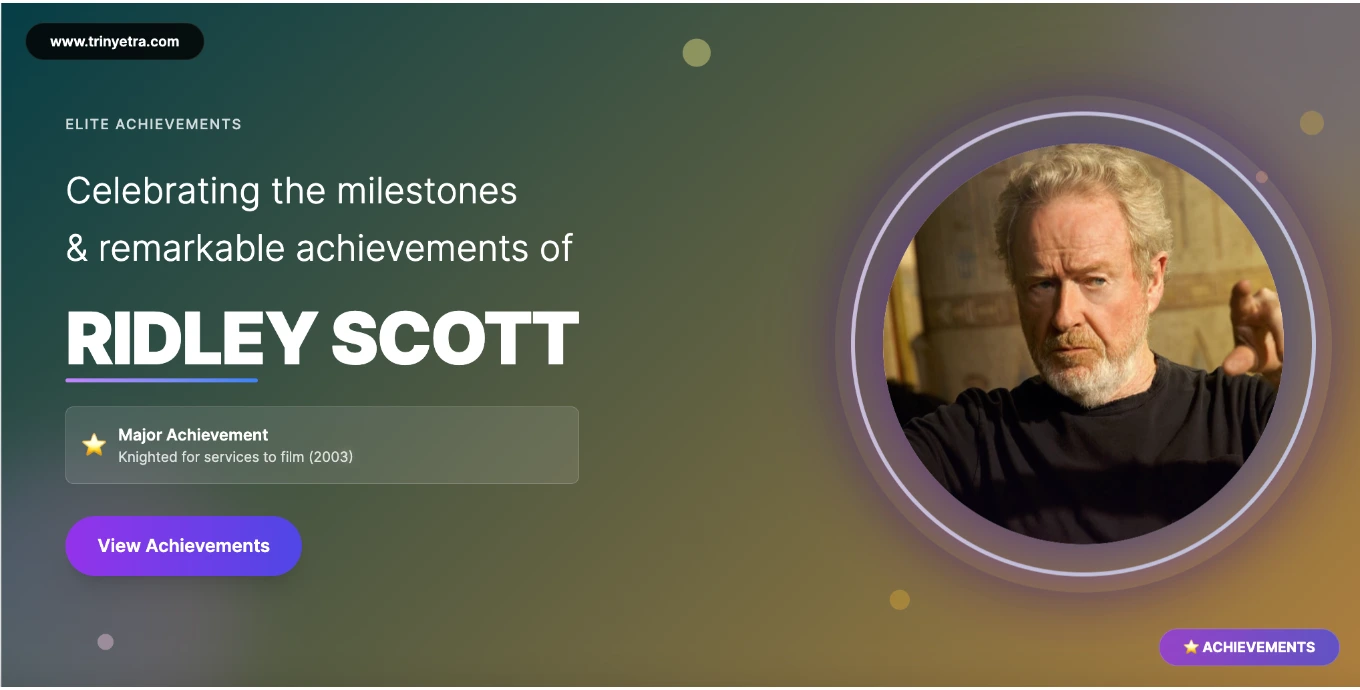
|
Ridley Scott's Social Media & Public Presence
Ridley Scott maintains a minimal direct social media presence, preferring to communicate through his work and selected media interviews rather than personal social media accounts. His public engagement typically occurs through film premieres, industry events, and carefully chosen interviews that focus on his creative process and upcoming projects rather than personal details.
| Platform | Presence | Engagement Style | Content Focus |
|---|---|---|---|
| Limited official presence | Project-focused | Film promotion, behind-scenes | |
| Twitter/X | Minimal personal activity | Professional announcements | Film releases, industry news |
| Public Appearances | Film festivals, premieres | Articulate, detailed | Creative process, industry insights |
| Interviews | Selective, substantial media | Thoughtful, comprehensive | Filmmaking philosophy, projects |
Scott's communication strategy emphasizes meaningful dialogue over frequent social media updates, reflecting his generation's approach to public engagement and his focus on substantial creative work rather than personal brand management. When he does engage with media, his interviews consistently provide valuable insights into filmmaking processes, industry evolution, and creative decision-making that benefit both film professionals and enthusiasts.
The director's public appearances typically center on film promotion, industry panels, and educational opportunities where he can share knowledge gained from decades of high-level production experience. His willingness to discuss both successes and challenges provides authentic learning opportunities for emerging filmmakers while maintaining the dignity and gravitas expected of a knighted filmmaker and industry veteran.
Related Directors & Collaborators
If you're interested in Ridley Scott's work, you might also enjoy learning about these influential filmmakers and frequent collaborators:
- George Miller Filmography - Mad Max & Happy Feet creator
- Martin Scorsese Biography - Legendary director of Goodfellas, The Departed & The Irishman
- Steven Spielberg Career Journey - Visionary behind Jaws, E.T. & Schindler's List
- Christopher Nolan Movies & Achievements - Dark Knight & Inception mastermind
- Denis Villeneuve Net Worth & Projects - Dune & Blade Runner 2049 director
For more director biographies and filmmaker profiles, visit our complete directors section.
Frequently Asked Questions About Ridley Scott
Personal Information
What is Ridley Scott's real age and birth date?
Ridley Scott was born on November 30, 1937, and is currently 87 years old as of 2025.
What is Ridley Scott's height and weight?
Ridley Scott is 5'8" (174 cm) tall. His weight is not publicly disclosed, though he maintains good health and energy for his age.
Is Ridley Scott married or in a relationship?
Ridley Scott is married to Giannina Facio, an actress and producer who has worked on many of his films. They married in June 2015 after years of professional and personal partnership.
Does Ridley Scott have any children?
Yes, Ridley Scott has three children: Jake Scott and Luke Scott (both directors) and Jordan Scott (filmmaker). All three have followed creative careers in the film industry.
What is Ridley Scott's educational background?
Scott studied at West Hartlepool College of Art and later at the Royal College of Art in London, where he helped establish the film department and developed his visual approach to storytelling.
Career & Professional Life
How did Ridley Scott start his filmmaking career?
Scott began with BBC television work on shows like Z Cars, then co-founded Ridley Scott Associates for commercials before making his feature debut with The Duellists (1977), which won the Cannes Jury Prize.
What are Ridley Scott's most successful movies?
Scott's biggest successes include Alien (1979), Blade Runner (1982), Gladiator (2000, Best Picture Oscar), Black Hawk Down (2001), and The Martian (2015), spanning multiple genres and decades.
What are Ridley Scott's upcoming projects in 2025?
Following Gladiator II (2024) and Napoleon (2023), Scott continues developing projects through Scott Free Productions while maintaining his remarkably active directing schedule well into his 80s.
What is Ridley Scott's directing style known for?
Scott is renowned for meticulous production design, multiple camera setups, detailed storyboarding, authentic period/future environments, and his ability to work across genres from sci-fi to historical epics.
Financial & Business
What is Ridley Scott's estimated net worth in 2025?
While exact figures are private, Scott's net worth is estimated between $400-500 million, earned through directing fees, production company ownership, and commercial work spanning six decades.
What is Scott Free Productions?
Scott Free Productions is the company Ridley founded with his late brother Tony Scott. It produces films and television series while developing projects across multiple platforms and international markets.
How much do Ridley Scott's movies typically earn?
Scott's films have grossed over $4 billion worldwide collectively, with major hits like Gladiator ($460M), The Martian ($630M), and the Alien franchise generating substantial revenues.
What was Ridley Scott Associates (RSA)?
RSA, co-founded in 1967, became one of the world's most successful commercial production companies, creating iconic advertisements including Apple's "1984" Super Bowl commercial and providing Scott with financial independence.
Awards & Recognition
Has Ridley Scott won any Academy Awards?
While Scott has received three Best Director nominations (Thelma & Louise, Gladiator, Black Hawk Down), he hasn't won individually, though his films have won multiple Oscars, including Best Picture for Gladiator.
When was Ridley Scott knighted and why?
Scott was knighted by Queen Elizabeth II in 2003, receiving the title Sir Ridley Scott for his services to the British film industry and his role in promoting British cinema internationally.
What is the BAFTA Fellowship?
The BAFTA Fellowship, awarded to Scott in 2018, is the British Academy's highest honor for lifetime achievement, recognizing exceptional contributions to film, television, or games.
What major film festivals have honored Ridley Scott?
Scott won the Cannes Jury Prize for Best First Work with The Duellists (1977) and has been honored at numerous international festivals for his contributions to cinema.
Specific Films & Projects
Why is Blade Runner considered so influential?
Despite initial commercial failure, Blade Runner revolutionized sci-fi cinema with its neo-noir aesthetic, philosophical themes, and production design that established the visual template for cyberpunk and influenced countless subsequent films.
What made Gladiator so successful?
Gladiator combined spectacular action with compelling character drama, featuring Russell Crowe's Oscar-winning performance, Hans Zimmer's score, and Scott's direction, earning $460 million and five Academy Awards, including Best Picture.
How did Alien change horror and sci-fi cinema?
Alien redefined both genres by combining claustrophobic horror with innovative creature design, influencing visual effects, production design, and narrative structure in countless subsequent sci-fi and horror films.
What is special about Ridley Scott's approach to The Martian?
Scott balanced scientific accuracy with entertainment value, working closely with NASA consultants while maintaining his visual storytelling expertise, resulting in both critical acclaim and commercial success ($630M worldwide).
Collaborations & Industry Relationships
Which actors has Ridley Scott worked with most frequently?
Scott frequently collaborates with Russell Crowe (five films), as well as actors like Joaquin Phoenix, Christian Bale, and more recently, his wife Giannina Facio, who appears in many of his productions.
What was Ridley Scott's relationship with his brother Tony Scott?
The Scott brothers maintained both personal closeness and professional collaboration through Scott Free Productions. Tony's death in 2012 was devastating for Ridley, who continues honoring their shared legacy.
How does Ridley Scott work with cinematographers?
Scott often serves as his own cinematographer or works closely with collaborators, applying his art school training to visual composition and his commercial background to efficient, multi-camera shooting techniques.
What is Ridley Scott's approach to working with actors?
Scott is known for thorough preparation, clear communication, and creating environments where actors can perform authentically within his meticulously designed worlds, often using multiple cameras to capture natural performances.
Creative Process & Philosophy
How does Ridley Scott prepare for his films?
Scott creates detailed storyboards, extensive visual research, and comprehensive production design before filming, applying his art school background to every aspect of visual storytelling and world-building.
What themes appear frequently in Ridley Scott's work?
Common themes include survival against overwhelming odds, the relationship between technology and humanity, moral ambiguity, historical authenticity, and the visual representation of power and corruption.
How has Ridley Scott adapted to changing film technology?
Scott embraces useful technological advances while maintaining classical storytelling principles, successfully transitioning from practical effects to digital techniques while preserving his distinctive visual style.
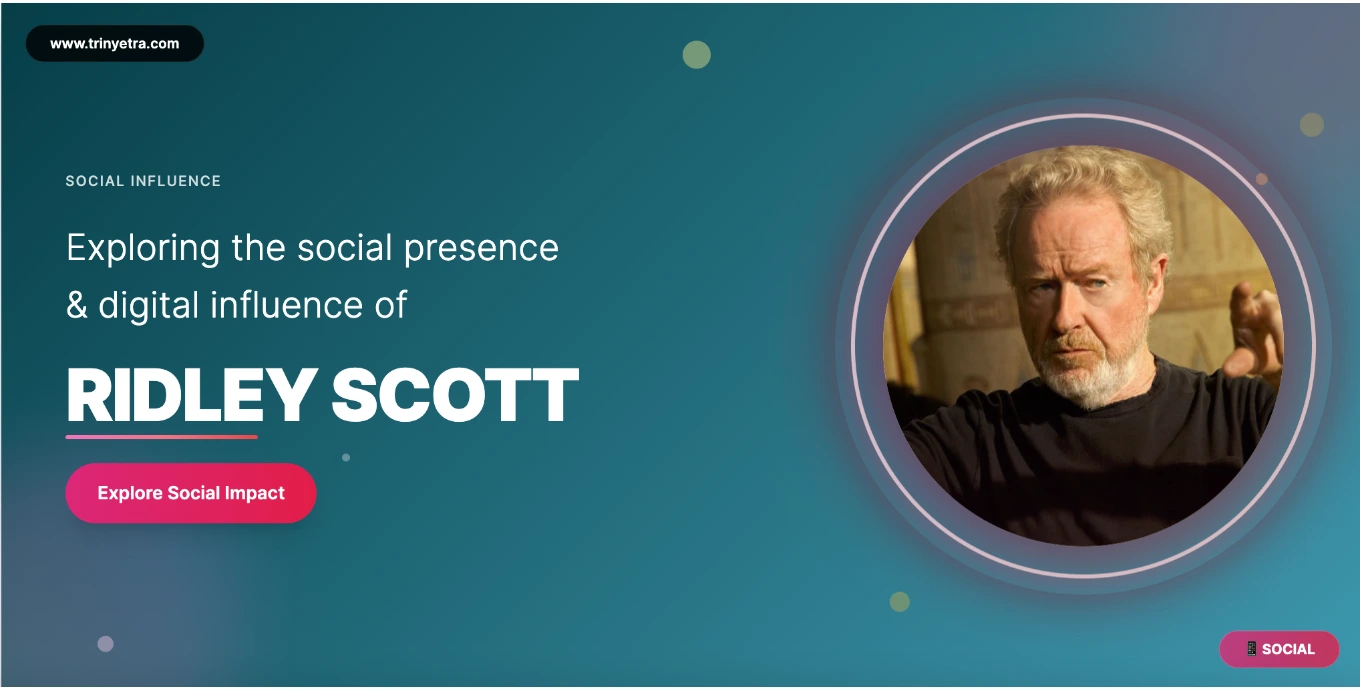
|
What advice does Ridley Scott give to young filmmakers?
Scott emphasizes the importance of visual literacy, thorough preparation, understanding story structure, and developing a personal artistic vision while learning the practical skills necessary for professional filmmaking.
Legacy & Influence
How has Ridley Scott influenced modern filmmaking?
Scott's visual innovations, genre-defining works, and production techniques continue to influence contemporary directors, production designers, and cinematographers, with his films studied in film schools worldwide.
What makes Ridley Scott's visual style distinctive?
Scott's style combines meticulous production design, atmospheric lighting, detailed world-building, and innovative camera work, creating immersive environments that serve both spectacle and character development.
How does Ridley Scott balance commercial and artistic filmmaking?
Scott achieves this balance through strong storytelling foundations, visual excellence, and his understanding of both audience expectations and industry demands, allowing artistic vision within commercial frameworks.
What will be Ridley Scott's lasting legacy in cinema?
Scott's legacy includes redefining science fiction cinema, pioneering visual techniques, creating enduring classics across multiple genres, and demonstrating how directors can maintain artistic integrity throughout long, commercially successful careers.
Related Articles
Explore the journeys of remarkable individuals who continue to inspire across industries and cultures with their unique contributions.
- Hugh Jackman Biography, Age, Net Worth, Height, Movies & Facts 2025
- George Miller Biography, Age, Net Worth, Height, Movies & Latest Updates
- Robert Downey Jr. Biography, Age, Net Worth, Height, Movies & Facts 2025
- Daniel Craig Biography, Age, Net Worth, Height, Movies & Facts
- Henry Cavill Biography, Age, Net Worth, Height, Movies & Facts
- Vin Diesel Biography, Age, Net Worth, Height, Movies & Facts
- Natalia Magdalena Janoszek: The Polish Beauty Who Conquered Bollywood and Hollywood
- Kunickaa Sadanand Bigg Boss 19 Biography, Age, Net Worth, Height, Movies & Facts
- Neelam Giri - The Rising Star of Bhojpuri Cinema and Bigg Boss 19 Fame
- Nehal Chudasama - From Fitness Transformation to Miss Universe 2018 and Bollywood Fame
- Farhana Bhatt Bigg Boss 19: Kashmir's Bold Beauty Takes on Bollywood Reality Show
- Pranit More Bigg Boss 19: Complete Biography, Comedy Career & Net Worth 2025
- Nagma Mirajkar Bigg Boss 19: The Fashion Queen's Reality TV Adventure
- Awez Darbar Bigg Boss 19: The Bollywood Choreographer's Reality TV Journey
- Tanya Mittal Bigg Boss 19: Miss Asia Tourism Universe 2018 Winner & Entrepreneur Biography
- Shehbaz Badesha: The Rising Bollywood Singer Making Waves in Reality TV and Music Industry 2025
- Tom Holland Biography, Age, Net Worth, Height, Movies & Facts 2025
For more celebrity biographies, visit our complete celebrities section.

Salman Khan Lifestyle, Automobiles, Height, Age, Weight,...

Ali Fazal Lifestyle, Automobiles, Family, Education, Hei...

Umar Riaz (Bigg Boss 15) Lifestyle, Automobiles, Height,...

Raqesh Bapat Lifestyle, Automobiles, Property, Net Worth...

Steven Yeun Biography, Age, Net Worth, Height, Movies & ...

Nick Kroll Biography, Age, Net Worth, Height, Movies & U...

Aryan Khan Lifestyle, Automobiles, Height, Age, Family &...

Nawazuddin Siddiqui Lifestyle, Automobiles, Height, Age,...

Ieshaan Sehgal (Bigg Boss 15) Lifestyle, Automobiles, He...

Sahil Shroff (Bigg Boss 15) Lifestyle, Automobiles, Heig...

Vrajesh Hirjee Lifestyle, Automobiles, Height, Age, Fami...

Rajkumar Rao Lifestyle, Automobiles, Height, Age, Family...

Sanjay Dutt Lifestyle, Automobiles, Affairs, Height, Age...

Nakuul Mehta Biography, Girlfriend, Car, Net Worth, Fami...

Shalin Bhanot Biography, Wife, Age, Net Worth, & More

Kartik Aaryan Age, Girlfriend, Car, Net Worth, Family, &...

Chris Evans | Age, Girlfriend, Bio, Net Worth, wife, & More

Arjit Taneja (Khatron Ke Khiladi 13), Wife, Car, Net Wor...

Sudhanshu Pandey aka Vanraj Shah Salary, Age, Worth [Anu...

Gaurav Khanna Biography, Age, Net Worth, Height, Movies ...

Paras Kalnawat aka Smar Shah, Age, Salary, Car [Anupama ...

Aashish Mehrotra aka Paritosh Shah (Toshu), Age, Salary,...
![Arvind Vaidya aka Bapuji [Hasmukh Shah], Age, Worth [Anu...](https://trinyetra.com/secure/assets/images/articles/arvind-vaidya-1694344374.webp)
Arvind Vaidya aka Bapuji [Hasmukh Shah], Age, Worth [Anu...

Kunal Jaisingh Aka Omkara Singh Oberoi, Age, Worth [Ishq...
